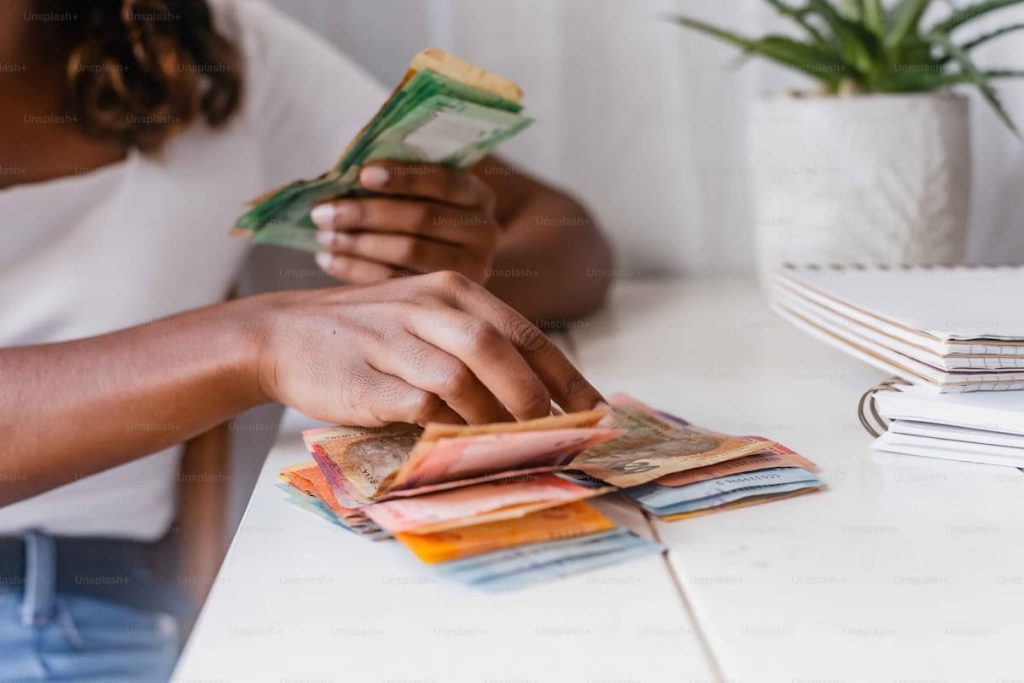This article is about counterfeiting currency, altering, misusing currency, and currency law in Nepal.
Introduction to Currency and Its Importance
Currency plays a crucial role as a financial instrument. It acts as a medium of exchange, facilitating trade and economic activities.
Currency isn’t just limited to cash notes and coins; it also includes various financial instruments like money orders, checks, drafts, letters of credit, bonds, credit cards, and more. Ensuring the authenticity and integrity of currency is vital for maintaining economic stability and public trust.

What is Counterfeit Currency?
Counterfeit currency refers to unlawfully produced or forged money that is made to appear like genuine currency issued by the Government of Nepal, Nepal Rastra Bank, or any recognized foreign authority.
The production, usage, and distribution of counterfeit money are serious crimes in Nepal, governed by strict laws designed to protect the nation’s economy.
Standards for Currency Production
Making Standard Less Currency
Only legally authorized bodies are allowed to produce currency in Nepal, and they must adhere to strict standards.
It is illegal to produce currency that does not meet these standards, exceeds legal limits, or deviates from prescribed methods. Individuals who knowingly produce substandard currency can be imprisoned for up to seven years and fined up to NPR 70,000.
Transporting Currency Instruments
Transporting or taking away any equipment, machinery, or instruments used for currency production is prohibited unless authorized by a competent legal authority.
Violating this law can result in up to five years of imprisonment and a fine of up to NPR 50,000.

Legal Provisions Against Counterfeit Currency
Counterfeiting Money
Under Section 256 of Nepal’s National Penal Code, counterfeiting money is explicitly prohibited. This law states that no individual can counterfeit or attempt to counterfeit currency. The penalties for this crime are severe.
A person found guilty of counterfeiting currency can face imprisonment for five to ten years and a fine ranging from NPR 50,000 to NPR 100,000. When determining the punishment, the court considers the quantity and value of the counterfeit money produced.
Usage of Counterfeit Money
Nepalese law not only prohibits the production of counterfeit currency but also its usage. Using counterfeit money includes activities like purchasing, selling, importing, exporting, and transacting with fake money, or even attempting to use or possess such currency.
If convicted of using counterfeit money, an individual can be sentenced to up to seven years in prison and fined up to NPR 70,000.
Instruments for Counterfeiting Currency
Section 258 of the National Penal Code addresses the possession, repair, or making of instruments that can be used to counterfeit currency.
It is illegal to possess, purchase, give, take, export, sell, import, or repair any instruments or materials intended for counterfeiting currency. Individuals involved in such activities can be imprisoned for up to seven years and fined up to NPR 70,000.
Altering and Misusing Currency
Altering Currency
Section 261 prohibits diminishing the weight or altering the prescribed form of Nepalese currency. This includes reducing the weight of coins or changing the chemical composition of the metal.
It is also illegal to import, export, or possess altered currency. Violators can be imprisoned for up to five years and fined up to NPR 50,000.
Using Prohibited Currency
Section 262 states that it is illegal to use or bring into circulation any currency that has been banned by the Government of Nepal.
Using, possessing, or exchanging such currency can lead to imprisonment for up to one year and a fine of up to NPR 10,000.
Misusing Torn Bank Notes
Banknotes that are burned, torn, or otherwise damaged are usually replaced by the Nepal Rastra Bank or other authorized banks.
It is illegal to burn, melt, tear, write on, or cross off banknotes in Nepal without authorization. Individuals who misuse torn banknotes can be imprisoned for up to three months and fined up to NPR 5,000.
Responsibilities of Authorized Individuals
Authorized individuals tasked with disposing of damaged banknotes must do so honestly and without recirculating them for personal gain. Misusing this responsibility can result in imprisonment for up to three years and a fine.
Statute of Limitation
The statute of limitation for reporting a complaint related to currency law violations in Nepal is one year from the date of knowledge of the crime.
Conclusion
Currency laws in Nepal encompass various aspects of currency production, usage, and protection against counterfeiting. These laws ensure that the economic system remains stable and that public trust in the financial system is maintained.
Violating these laws carries severe penalties, reflecting the seriousness with which Nepal treats currency-related crimes.
Also Read: Tax Laws in Nepal
